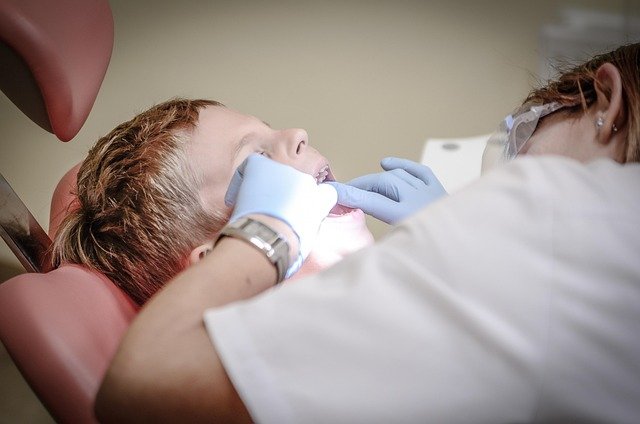Finding the Right Dentist for Seniors: What to Look for in 2025
As we age, dental needs change—and finding a dentist who understands those changes can make all the difference. From managing dry mouth to maintaining dentures or supporting overall oral health, seniors benefit from specialized care that prioritizes comfort, experience, and prevention. This guide explores what to consider when choosing a dentist for seniors and how the right provider can support long-term well-being.

What specialized services should a senior-friendly dentist offer?
A dentist catering to seniors should offer a range of specialized services tailored to the unique needs of older patients. These may include:
-
Denture care and maintenance
-
Treatment for dry mouth (xerostomia)
-
Management of gum disease and periodontal issues
-
Oral cancer screenings
-
Restorative procedures like dental implants and bridges
-
Treatment for sensitive teeth and root decay
Senior-friendly dentists should also be well-versed in handling complex medical histories and potential drug interactions that may affect oral health or treatment options.
How important is accessibility and comfort in a dental office for seniors?
Accessibility and comfort are paramount when it comes to dental care for seniors. A senior-friendly dental office should prioritize:
-
Wheelchair accessibility throughout the facility
-
Well-lit waiting areas and examination rooms
-
Comfortable seating with proper back support
-
Clear signage and easy-to-read printed materials
-
Minimal background noise to facilitate communication
-
Parking close to the entrance or valet services
Additionally, flexible scheduling options and longer appointment times can help accommodate seniors who may need extra time or assistance during their visits.
What experience and qualifications should you look for in a senior-focused dentist?
When selecting a dentist for seniors, it’s essential to consider their experience and qualifications in treating older patients. Look for:
-
Advanced training or certification in geriatric dentistry
-
Years of experience working with senior patients
-
Membership in professional organizations focused on senior dental care
-
Continuing education in age-related oral health issues
-
Familiarity with common medical conditions affecting seniors
-
Strong communication skills and patience
A dentist with these qualifications will be better equipped to address the unique challenges and concerns of senior patients.
How can technology enhance dental care for seniors in 2025?
In 2025, technological advancements are expected to play a significant role in improving dental care for seniors. Some innovations to look for include:
-
Digital impressions and 3D printing for faster, more accurate dentures and restorations
-
Teledentistry options for remote consultations and follow-ups
-
Advanced imaging techniques for early detection of oral health issues
-
Computer-aided design and manufacturing (CAD/CAM) for same-day crowns and veneers
-
Intraoral cameras for improved patient education and treatment planning
-
Electronic health records for better coordination with other healthcare providers
These technologies can make dental visits more comfortable, efficient, and effective for senior patients.
What preventive care strategies should senior-focused dentists emphasize?
Preventive care is crucial for maintaining good oral health in seniors. A dentist focused on senior care should emphasize:
-
Regular dental check-ups and cleanings (every 3-6 months)
-
Personalized oral hygiene instructions tailored to the patient’s abilities
-
Fluoride treatments to strengthen enamel and prevent decay
-
Nutritional counseling to support oral and overall health
-
Early intervention for gum disease and tooth decay
-
Education on the importance of maintaining natural teeth
By prioritizing prevention, senior-focused dentists can help their patients maintain better oral health and quality of life.
How do costs and insurance coverage factor into choosing a senior dentist?
When selecting a dentist for seniors, it’s important to consider costs and insurance coverage. Many seniors are on fixed incomes, making affordability a crucial factor. Here’s a comparison of typical dental services and their estimated costs:
| Service | Estimated Cost Range | Typical Insurance Coverage |
|---|---|---|
| Routine Check-up and Cleaning | $75 - $200 | Often fully covered |
| Full Set of X-rays | $100 - $300 | Partially covered (50-80%) |
| Dentures (full set) | $1,000 - $3,000 | Partially covered (50%) |
| Dental Implant (single tooth) | $3,000 - $4,500 | Often not covered |
| Periodontal Treatment | $500 - $2,000 | Partially covered (50-80%) |
| Tooth Extraction | $75 - $300 | Partially covered (70-80%) |
Prices, rates, or cost estimates mentioned in this article are based on the latest available information but may change over time. Independent research is advised before making financial decisions.
When choosing a dentist, consider their acceptance of Medicare or Medicaid, as well as any senior discounts or payment plans they may offer. It’s also wise to inquire about the cost of common procedures and compare them with other local providers to ensure you’re getting fair pricing.
In conclusion, finding the right dentist for seniors in 2025 involves considering specialized services, accessibility, experience, technology, preventive care strategies, and cost factors. By carefully evaluating these aspects, seniors can choose a dental care provider who will support their oral health needs and contribute to their overall well-being in the years to come.
This article is for informational purposes only and should not be considered medical advice. Please consult a qualified healthcare professional for personalized guidance and treatment.




